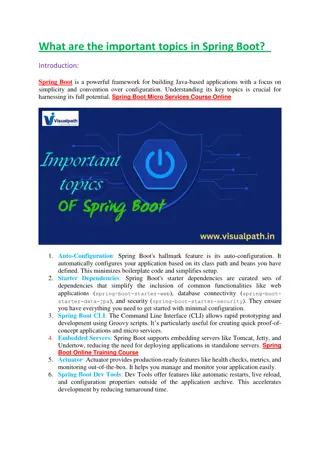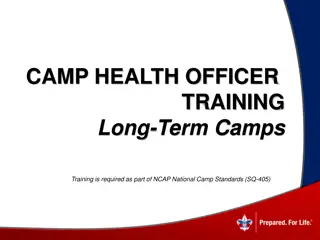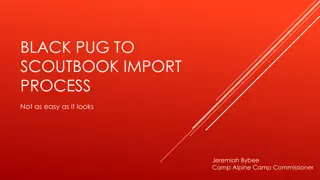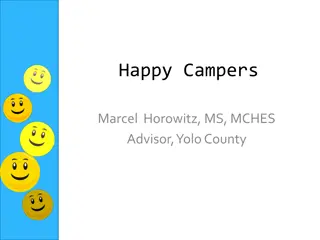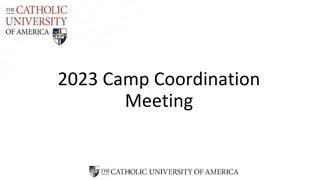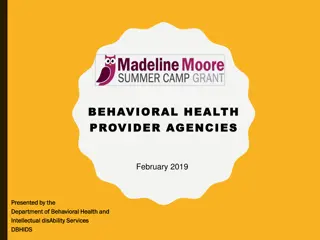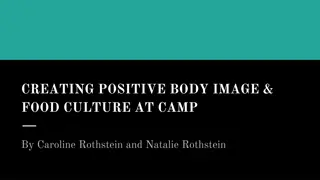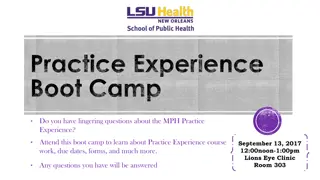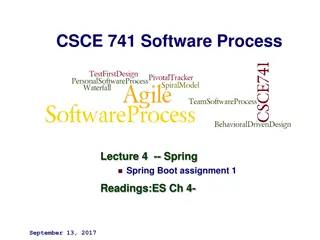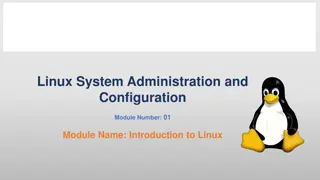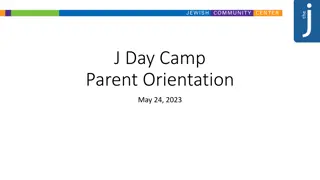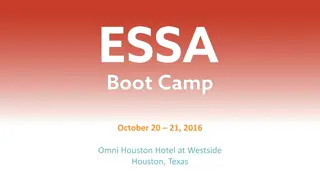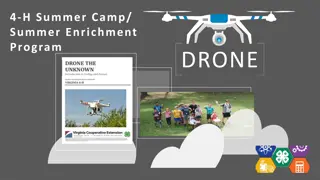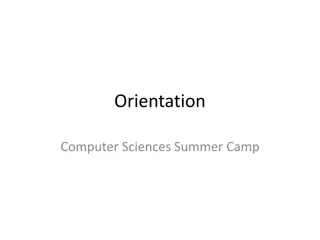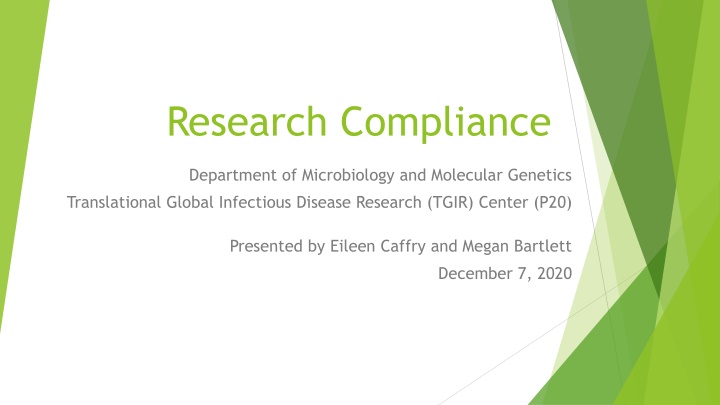
Insights into Research Compliance and Consequences in Academic Settings
Explore the critical aspects of research compliance in academic institutions, featuring examples of hefty settlements due to noncompliance incidents at prestigious universities like Scripps, Duke, University of Florida, and Yale. Understand the importance of adhering to regulations, minimizing risks, and utilizing available resources to maintain integrity in research practices.
Download Presentation

Please find below an Image/Link to download the presentation.
The content on the website is provided AS IS for your information and personal use only. It may not be sold, licensed, or shared on other websites without obtaining consent from the author. If you encounter any issues during the download, it is possible that the publisher has removed the file from their server.
You are allowed to download the files provided on this website for personal or commercial use, subject to the condition that they are used lawfully. All files are the property of their respective owners.
The content on the website is provided AS IS for your information and personal use only. It may not be sold, licensed, or shared on other websites without obtaining consent from the author.
E N D
Presentation Transcript
Research Compliance Department of Microbiology and Molecular Genetics Translational Global Infectious Disease Research (TGIR) Center (P20) Presented by Eileen Caffry and Megan Bartlett December 7, 2020
Research Compliance Key Talking Points How should I think about research compliance? What are the essential elements for minimizing my risk? What resources are available to me? What are some examples and consequences surrounding noncompliance? (Oversight and increasing scrutiny)
https://www.lajollalight.com/news/story/2020-09-16/scripps-research-to-pay-10-million//.... Scripps Research to pay $10 million to settle allegations of improperly charging NIH-funded grants BY LA JOLLA LIGHT STAFF SEP. 16, 2020 The Scripps Research Institute, which has a campus in La Jolla, has agreed to pay $10 million to settle claims that it improperly charged federal research grants for time researchers spent on non-grant-related activities, according to the U.S. Department of Justice.
https://www.cnn.com/2019/03/25/politics/duke-settlement-falsifying-research-federal-https://www.cnn.com/2019/03/25/politics/duke-settlement-falsifying-research-federal- grants/index.html Duke to pay $112.5 million to settle allegation of falsifying research for federal grants By Kate Sullivan, CNN Updated 9:58 PM ET, Mon March 25, 2019
https://www.wuft.org/news/2015/11/20/university-of-florida-agrees-to-19-8-million-federal-https://www.wuft.org/news/2015/11/20/university-of-florida-agrees-to-19-8-million-federal- settlement/ University of Florida Agrees To $19.8 Million Federal Settlement Ethan Magoc Dept. of Justice Release The University of Florida (UF) has agreed to pay the United States $19.875 million to settle allegations that the university improperly charged the U.S. Department of Health and Human Services (HHS) for salary and administrative costs on hundreds of federal grants, the Department of Justice announced today.
Yale pays $7.6 million to settle federal investigation By Nadya Labi | Mar/Apr 2009 Say what you will about Wall Street firms. But when it's universities that receive billions of dollars from the government, mistakes don't come cheap. In late December, the U.S. Attorney's Office in New Haven announced that Yale had agreed to pay $7.6 million to settle allegations that it had made false claims on federal research grants.
Findings of Research Misconduct Notice Number: NOT-OD-20-166 Key Dates Release Date: August 20, 2020 Issued by Office of The Director, National Institutes of Health (OD) Purpose SUMMARY: Findings of research misconduct have been made against Rahul Dev Jayant, Ph.D. (Respondent), Assistant Professor Pharmaceutical Sciences, School of Pharmacy, Texas Tech University Health Science Center (TTUHSC).
What is Research Compliance? Research compliance is an overall term encompassing the responsible conduct of research, research conflict of interest (individual and institutional), human and animal subjects protection, biosafety, export control, and allegations of research misconduct.
How should we think about Research Compliance? Responsible Conduct of Research Research Integrity Authorship Research Compliance Mentoring and Supervision Data Handling Peer Review Financial Compliance
Responsible Conduct Of Research Best Practices Checklist for Research at UVM Research Integrity Data Handling Authorship and Communication Mentoring and Supervision Peer Review Responsible Conduct of Research Research Compliance Disclose and manage all financial conflicts of interest and conflicts of commitment. Protect human subjects and laboratory animals. Follow environmental and other safety regulations. Do not engage in misuse. List excerpted from Fostering Integrity in Research Report - National Academies of Sciences, Engineering, and Medicine
Joint Committee on Research Environments (JCORE) May 2019 - National Science and Technology Council (NSTC) established JCORE to address issues related to research environment safety, integrity, and productivity JCORE Subcommittee on Research Security brings together agencies from across the government Guidance for federal departments and agencies Best practices for universities and other research institutions Big focus on TRANSPARENCY >>> Ensure disclosure of potential conflicts of interest and conflicts of commitment
Commitment Transparency & Upcoming Changes Biosketch Changes Revising Section B: will now capture scientific appointments (i.e., Positions, Scientific Appointments, and Honors) Removing Section D: Research Support - duplicates info provided in Other Support Other Support Changes All research support to be consolidated into the Other Support document; IC s will check for foreign components prior approvals ***NEW Structured form (NIH adopting NSF form) and asks for Current, Pending, Planned, Transferred Support Must include detail on in-kind contributions (if involves time obligation and not related to submitted proposal)
Biosketch Mock-Up Non-Fellowship Format Page CURRENT FORMAT (as of July 2020) Mock-up with Proposed Changes (in red) 13
Other Support Updates Format Page New NIH mock-up with Proposed Changes
Financial Conflict of Interest (FCOI) Policy in Sponsored Research to protect the public trust in research by promoting objectivity Disclose annually or when new qualifying financial interest arises Disclosures are done in UVM Click FCOI training is required every 4 years Training is done through CITI Program Significant Financial Interest vs. FCOI
Export Controls Set of laws and regulations that regulate the distribution of export controlled technology, equipment, software, information, or services to a foreign person or to a foreign country SPA Award Acceptance Officers review awards for identifiers that may be subject to export control regulations. Concerns are referred to the Office of Research Integrity >> Technology Control Plan
Fundamental Research Exclusion (FRE) Definition of fundamental research: basic and applied research in science, engineering, and mathematics, where the resulting information is ordinarily published and shared broadly within the scientific community. To qualify for FRE, the research agreement contains no access restrictions, and the researchers are free to publish and share the research results broadly >>> the research and its results are not subject to export controls Under FRE, information and/or software that arise during, or result from, fundamental research are not subject to export controls. IMPORTANT! Even under the FRE, some items and information are subject to export controls, and may require an export license.
UVM Research Protections Office Role of RPO (IRB, IACUC, IBC) Supports UVM and UVMMC researchers in maintaining regulatory compliance Oversees external reviews and inspections by regulatory agencies Investigates and manages the remediation requirements of any non-compliance Committees review and approve all research protocols All protocols are created, submitted and managed through UVMClick
Required CITI Courses for Researchers IRB Human Subjects (every 3 years): Biomedical Research GCP (Good Clinical Practice) for Clinical Trials - Drugs & Devices (US FDA Focus) IACUC Animals: General Lab Animal Training [select animal]-specific course (e.g., Working with Mice in Research) IBC Biosafety: Animal Basic Safety BSL-2 Basic Course OSHA Bloodborne Pathogens (if working with blood, annually) https://about.citiprogram.org/en/homepage/
Institutional Review Board All research involving human subjects must be reviewed by IRB CHRMS committee reviews medical research CHRBSS committee reviews behavioral and social science research Academically diverse group of faculty and community members from UVM and UVMMC Generally meets on the 3rd Wednesday of every month submission deadlines 4 weeks prior (all committee meeting schedules are online) Note about approvals for research involving human biospecimens when no interaction between subjects and research team (whether exemptions to IRB continued review or determination of not human subject research) Each RPO webpage has a place where you can find your department s assigned specialist (Same is true for RAs and FAs in SPA)
Institutional Animal Care and Use Committee IACUC must review and approve ALL animal use in teaching and research prior to any work with animals. Consists of scientists, non-scientists, biosafety experts, statisticians, community members, and a veterinarian. At UVM, >97% of the animals used in research are rats and mice. Generally meets on the 4th Monday every month requires vet review prior to committee review. IACUC just recently completed the transition of animal protocols into UVM Click
Institutional Biosafety Committee IBC must review and approve ALL research involving the use of RNA, infectious agents, biotoxins, select agents and gene therapy must have an approved IBC protocol prior to work being done. Research involving recombinant and synthetic nucleic acid molecules Consists of scientists, non-scientists, biosafety experts, statisticians, community members. Protocols consolidated by lab >>> Master Protocol Registration Generally meets on the 2nd Tuesday of every month requires Biosafety Officer review prior to committee review
Principal Investigator Certification By signing this proposal, you certify to the following: That all statements and information provided within the proposal are true, complete and accurate to the best of my knowledge. I am aware that any false, fictitious, or fraudulent statements or claims may subject me to criminal, civil, or administrative penalties. I agree to comply with any resulting award terms and conditions and manage the project in accordance with University and Sponsor policies and procedures. I accept responsibility for the conduct of the project and agree to provide all required progress reports and the final report in any resulting award.
Effort Compliance What is Effort % of personnel time spent on a given task, research or otherwise What is Committed Effort Effort proposed to be spent on given project and accepted by sponsor Applies to all key personnel on a project. Cost Shared Effort Effort proposed on a project, not charged to the sponsor. Still treated as committed effort
Effort Compliance (Continued) Effort Changes Reduction of more than 25% Prior Approval Requires Can increase if appropriate as well Effort Management Regular review of effort on all funding sources and activities. Individual project level and Broad FTE review Effort Reporting Federally mandated process Many internal controls
Effort Compliance - Reporting (Continued) Effort Certification Annual review process of all effort spent on sponsored research Certifying effort reflects how each team members was spent Displayed at annualized percentages Effort Verification Quarterly review at a minimum Allows for identification of changes in timely manner Effort Reporting System (ERS) System for tracking, communicating, certifying, and verifying effort
Subawards Subawards, Consultants, or Supplier Important to address in proposal building stage Communication with Subawardee Regular communication Discuss progress PI responsible for affirming payment is reasonable and appropriate
Audits Financial audits at the individual award level Types: Internal, External, State, Federal Annual Single Audit at the institution level Review financial statements, internal controls, compliance PI and Department/Research Administrator Roles Only provide information that is asked for, do not elaborate Only answer questions you know the answer to; do not hesitate to defer. Answer queries on operating expenses and personnel effort Speak to department processes and controls. Is available to meet with auditor along with SPA.
Research Compliance Summary Proposal Submissions >>> Must be true and accurate Time and Effort >>> Charge and Report Accurately Award Financial Compliance >>> Manage the Money Correctly Follow federal Uniform Guidance all costs MUST be reasonable, allocable, allowable Research Misconduct >>> Career Limiting Behavior
LINKS and RESOURCES Bootcamp presentations and useful links can be found on the MMG Resources Page http://www.med.uvm.edu/mmg/department_resources

